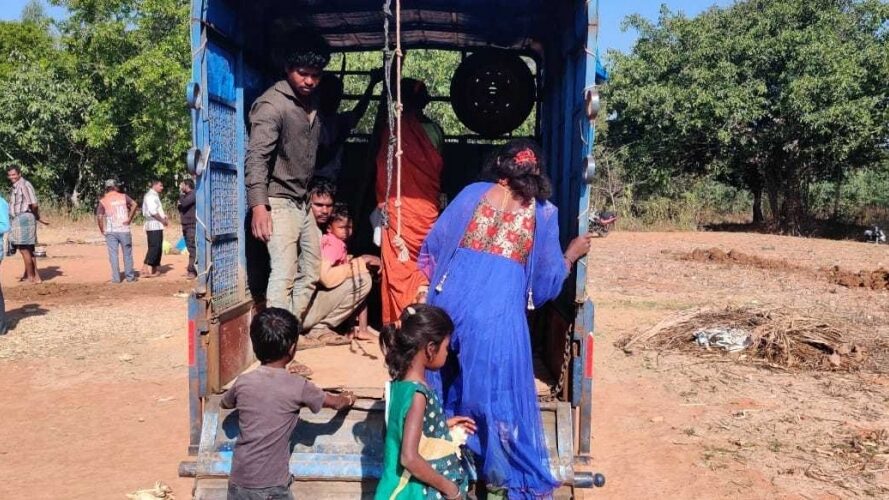Freed from Fear: Rescue Operation at Three Eucalyptus Farms
Slavery
Last week, IJM joined the Karnataka State Human Rights Commission (KSHRC) and local authorities on a rescue operation to free 50 people from bonded labor at three eucalyptus tree farms near Bangalore, in southern India.
Thanks to the government’s compassionate work, these families (including 20 children) are now safe and recovering in freedom after years of violent abuse.
As we celebrate, one IJM leader shared: “There is no greater joy than the first taste of liberty experienced by those in bondage!”
Trapped in Debt Bondage
Years ago, two men had lured these impoverished families to the farms by offering cash advances they could repay with their labor. Most of these advances were less than 10,000 rupees (about $130 USD), but the owners manipulated the debt and demanded the laborers pay huge sums if they wanted to leave.
One family had been trapped under this debt bondage for 15 years, with the owner now demanding they pay 115,000 rupees (about $1,500 USD)—more than 10 times their original debt.
To maintain control, the owners also used physical abuse, violent threats and confinement to control the laborers and force them to chop wood endlessly. Families lived in this environment with very little food or clean water, and at night slept in crude tents out in the elements. Many of the 20 children had been born into these difficult conditions.
Their story came to light when one woman’s brother approached the government about the abuse his sister was facing. IJM then worked with local authorities to investigate the farms and plan an operation to bring them to safety on Friday, March 13.
From Fear to Freedom
Despite the violence they had suffered, the day of rescue was still difficult for these families. One IJM staff member described, "When a team of officials arrived at the facility to rescue the laborers, they were completely unsure, hesitant and found it hard to trust anyone. They initially spoke with such trepidation. Fifteen years in bondage is never easy!”
She added, “It was encouraging to see the Karnataka State Human Rights Commission (KSHRC)…being willing to comprehend the gravity of the situation and empathize with the laborers. Calmed by the words of the Deputy Superintendent, the labourers expressed their plight. There was fear, but finally boldness transcended their apprehension. They chose to be courageous despite their fear. And that choice made all the difference!”
Based on this powerful testimony, the farm owners were immediately taken into police custody. Initial charges have been filed under India’s laws against bonded labor and human trafficking.
Local officials immediately provided the rescued families food and medical care and have given the 30 adults Release Certificates—which prove they are officially released from bondage and cleared of all their debts. Today, officials are working on securing bank accounts, back-wages and other compensation for the survivors.
Next, IJM and our partners will support the rescued families in a two-year aftercare program as they recover. The first step will be helping them find a safe community to call home after so many years in bondage. Local officials are helping the survivors access benefits programs for temporary and long-term housing, as well as dignified employment.
A Promising Future
This proactive leadership from the KSHRC and local government represents a promising shift in how India is combating bonded labor. IJM staff on the rescue shared, “Earlier on, IJM may have had to be the one quick to reassure and encourage [the victims]. Today, the government is stepping in to do their part."
A senior official from the KSHRC added his commitment, saying, “With laborers rescued and rehabilitated, and their principle employers held accountable, these media reports must reach the remotest places of the state and not just be read by a few in the state’s capital. These stories send the real message that deters perpetrators and addresses the shameful practice of bonded labor.”